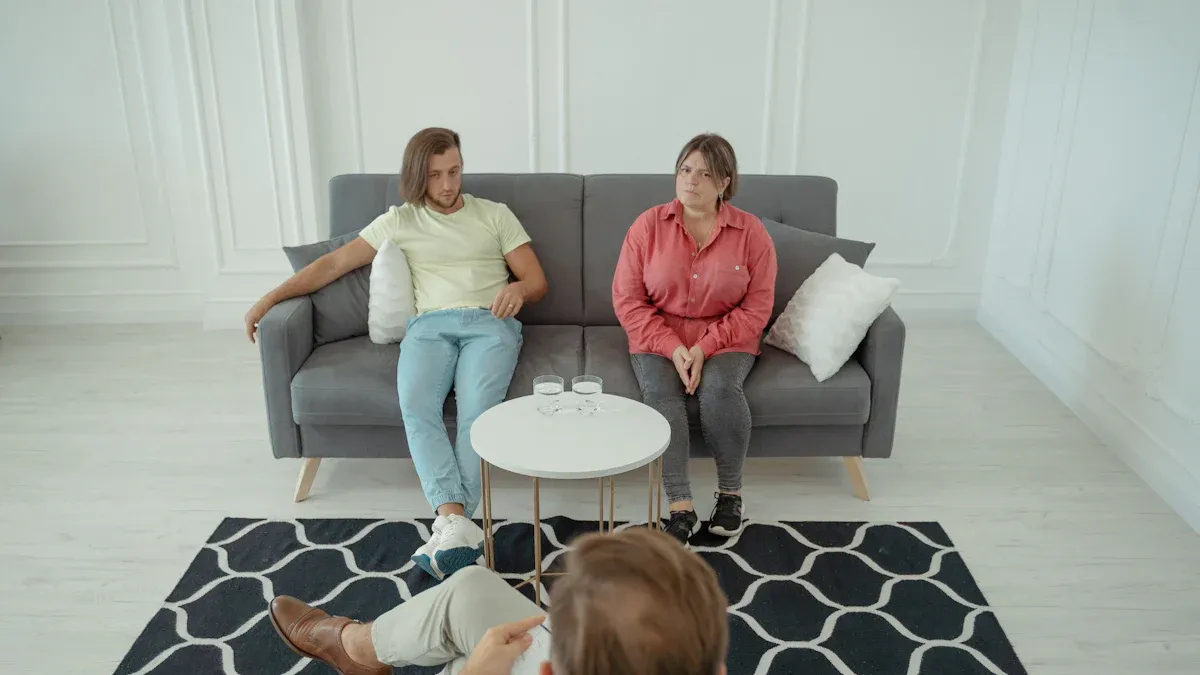Relationships require nurturing, especially during challenging times. When communication breaks down or conflicts seem unresolvable, online couples therapy offers a convenient and effective path to rebuilding connection. This comprehensive guide explores how virtual marriage counseling works, its benefits compared to traditional therapy, and practical steps to find the right service for your relationship needs.
What Is Online Couples Therapy?
Online couples therapy (also called virtual marriage counseling or relationship therapy online) is professional therapeutic support delivered through digital platforms. Licensed marriage and family therapists work with couples via video conferencing, providing the same evidence-based approaches used in traditional in-person sessions, but with added convenience and accessibility.
This modern approach to relationship counseling has gained significant popularity, especially since 2020, with many couples discovering that virtual sessions offer comparable effectiveness to in-person therapy while eliminating common barriers like commuting time, scheduling conflicts, and childcare concerns.

Licensed therapists use secure platforms to deliver effective therapy remotely.

Couples can participate from the comfort and privacy of their own home.
Key Benefits of Online Couples Therapy
Virtual couples counseling offers several advantages over traditional in-person therapy, making it an attractive option for many couples facing relationship challenges.
Convenience & Accessibility

Attend sessions from anywhere with an internet connection. No need to coordinate travel to an office, find parking, or arrange childcare. This accessibility is especially valuable for couples with busy schedules, those living in rural areas, or partners who travel frequently.
Enhanced Privacy

Many couples feel more comfortable discussing sensitive issues from their own home. The familiar environment can help partners open up more freely about intimate concerns without the anxiety of being overheard in a therapist’s office.
Cost-Effectiveness
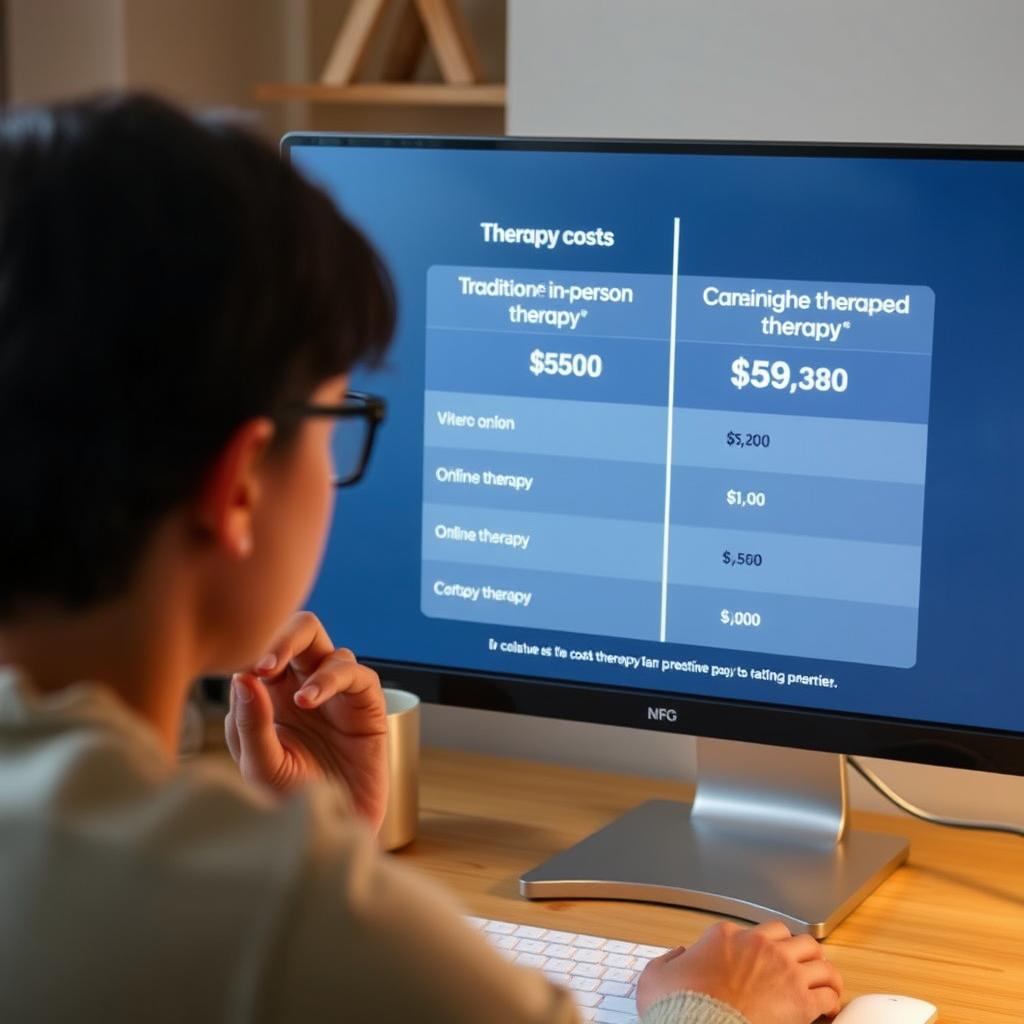
Online couples therapy often costs less than traditional in-person sessions. Without the overhead of maintaining a physical office, many therapists pass these savings to clients. Additionally, you’ll save on transportation costs and time away from work.
Flexible Scheduling
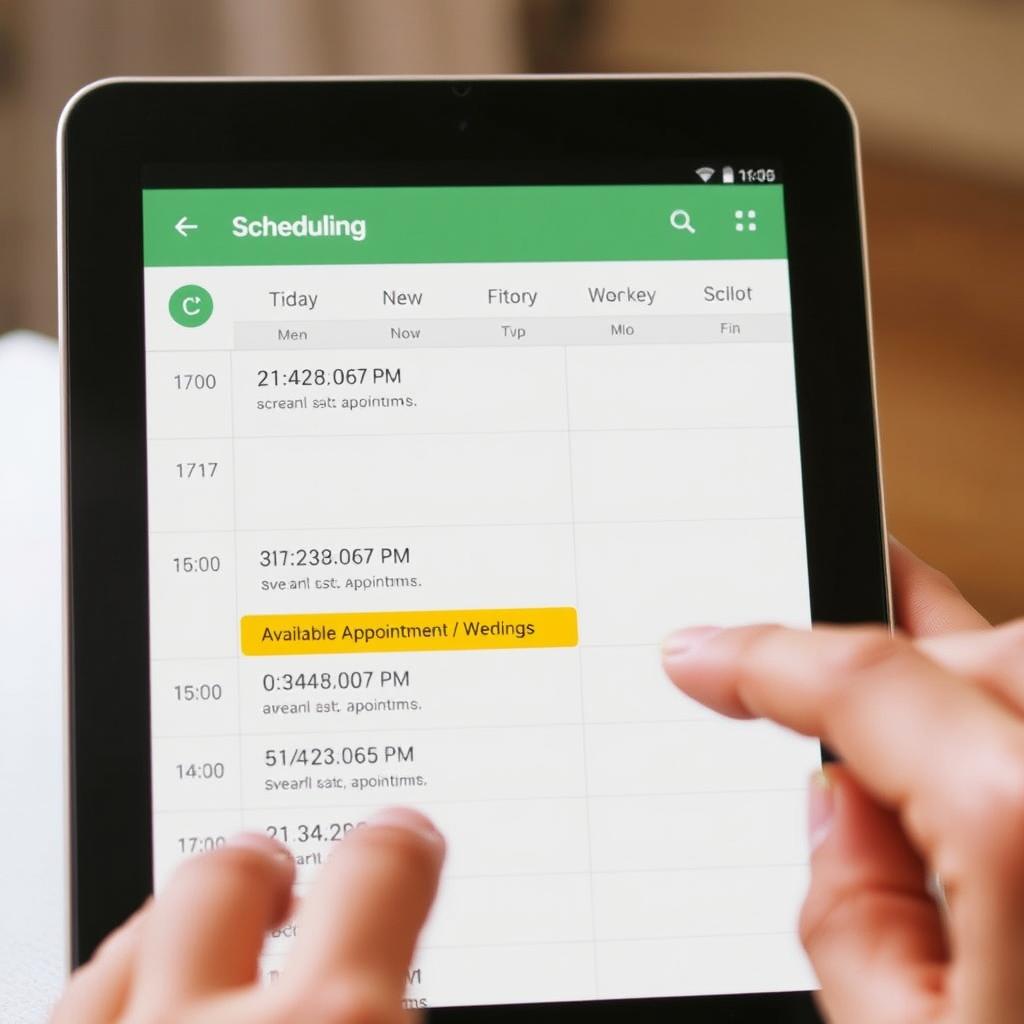
Many online therapists offer evening and weekend appointments that accommodate work schedules. Some platforms even provide messaging options between sessions, allowing couples to communicate with their therapist when issues arise.
Wider Selection of Specialists

Geography no longer limits your therapist options. You can work with specialists who have expertise in your specific relationship challenges, regardless of their physical location (within your state, due to licensing requirements).
Comfort & Familiarity

Being in your own space can reduce anxiety and help you feel more at ease during therapy sessions. This comfort often leads to more productive conversations and faster progress in addressing relationship issues.
How Online Couples Therapy Works
Understanding the mechanics of virtual couples counseling can help you feel more confident about taking this step to improve your relationship.
Platforms & Technology
Most online couples therapy takes place through secure, HIPAA-compliant video conferencing platforms specifically designed for telehealth. These platforms ensure your sessions remain private and confidential, just like in-person therapy.
Common platforms include:
- Dedicated therapy provider platforms (Talkspace, BetterHelp)
- Secure video conferencing (Zoom Healthcare, VSee)
- Practice-specific portals with integrated scheduling and billing
Many services also offer supplemental communication through secure messaging, allowing you to share thoughts or concerns between sessions.
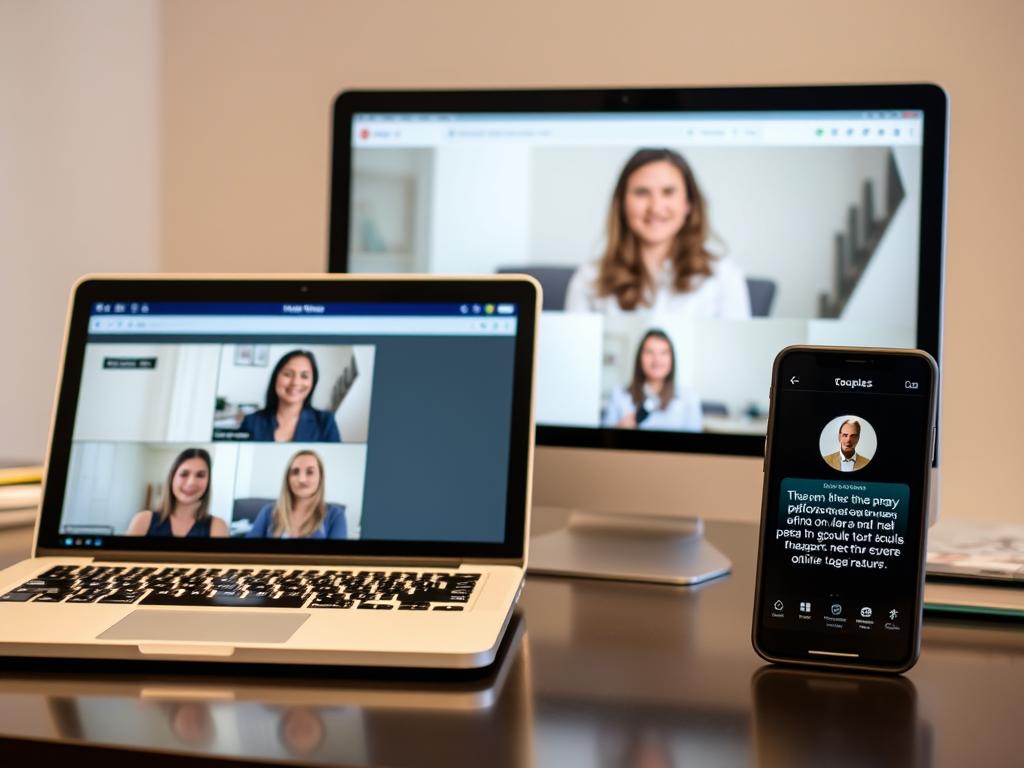
Session Formats
Online couples therapy typically follows similar formats to traditional therapy, with some adaptations for the virtual environment:
Video Sessions
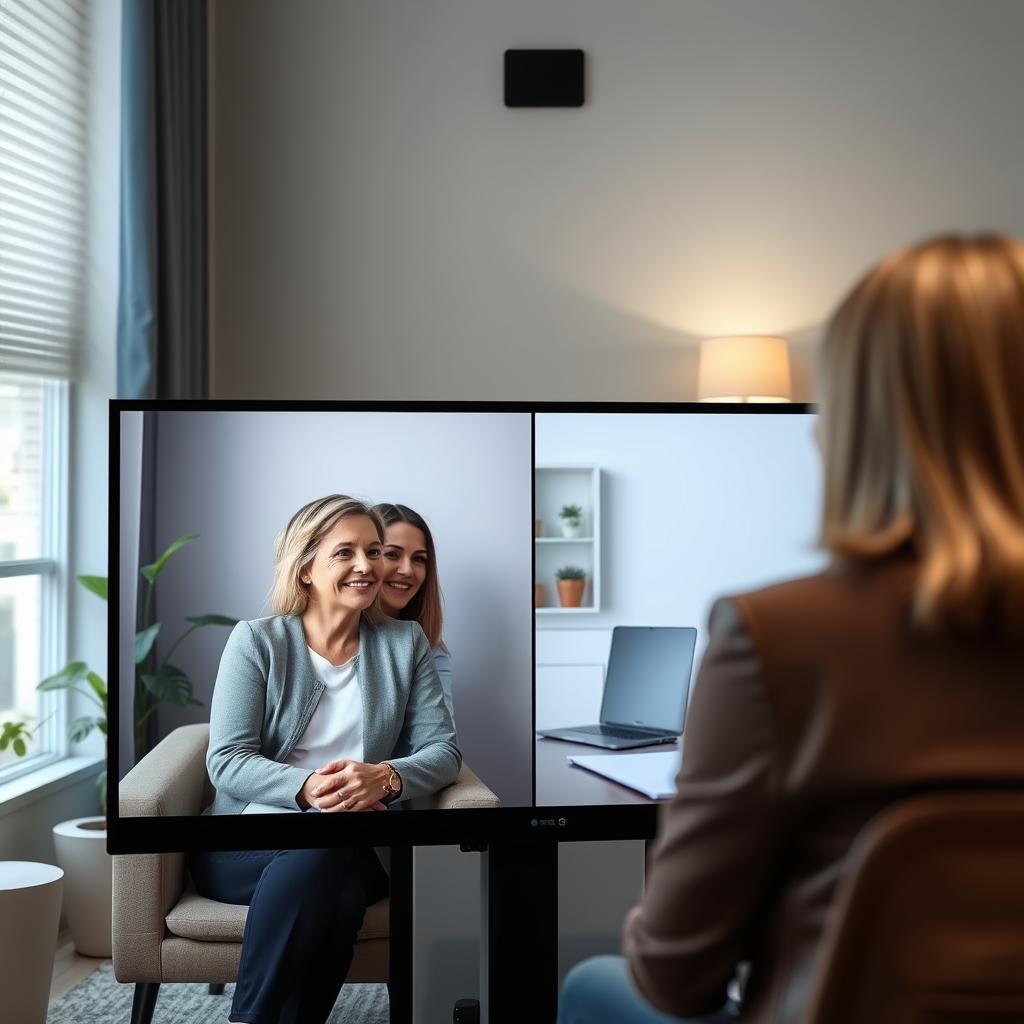
The most common format, mimicking in-person therapy. Both partners and the therapist can see and hear each other in real-time, allowing for observation of body language and emotional cues.
Joint & Individual Sessions
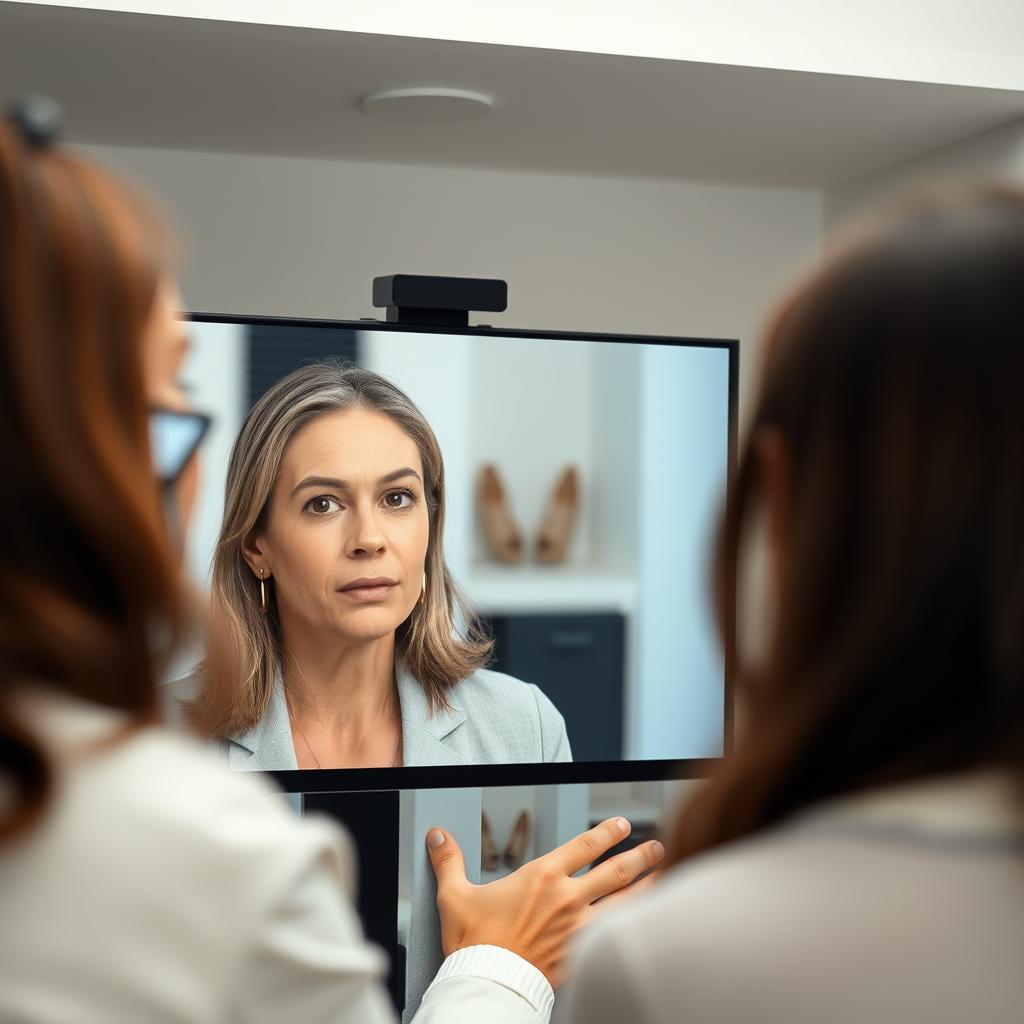
Many therapists incorporate both joint sessions (with both partners) and occasional individual sessions to address personal concerns that impact the relationship.
Messaging & Exercises

Between video sessions, your therapist may assign exercises, reading materials, or communication practices to reinforce skills learned during therapy.
Therapist Qualifications
When seeking online couples therapy, look for professionals with these credentials:
- Licensed Marriage and Family Therapist (LMFT)
- Licensed Professional Counselor (LPC) with couples specialization
- Licensed Clinical Social Worker (LCSW) with relationship focus
- Psychologist (PhD or PsyD) with couples therapy training
Many therapists also have specialized training in specific approaches like Gottman Method, Emotionally Focused Therapy (EFT), or Imago Relationship Therapy.
Online vs. Traditional In-Person Couples Therapy
While both formats offer effective support for relationships, understanding the differences can help you choose the right approach for your situation.
Advantages of Online Therapy
- Greater scheduling flexibility
- No travel time or transportation costs
- Access to specialists regardless of location
- Often more affordable
- Comfortable, familiar environment
- Easier to fit into busy schedules
- Option for partners in different locations to join
Advantages of In-Person Therapy
- No technology or internet requirements
- Therapist can observe full body language
- No potential for technical disruptions
- Dedicated space away from home distractions
- May feel more “official” to some couples
- Physical separation from daily environment
Research shows: Studies have found comparable effectiveness between online and in-person therapy for many relationship issues. A 2020 study in the Journal of Marital and Family Therapy found that couples reported similar satisfaction and outcomes with both formats.
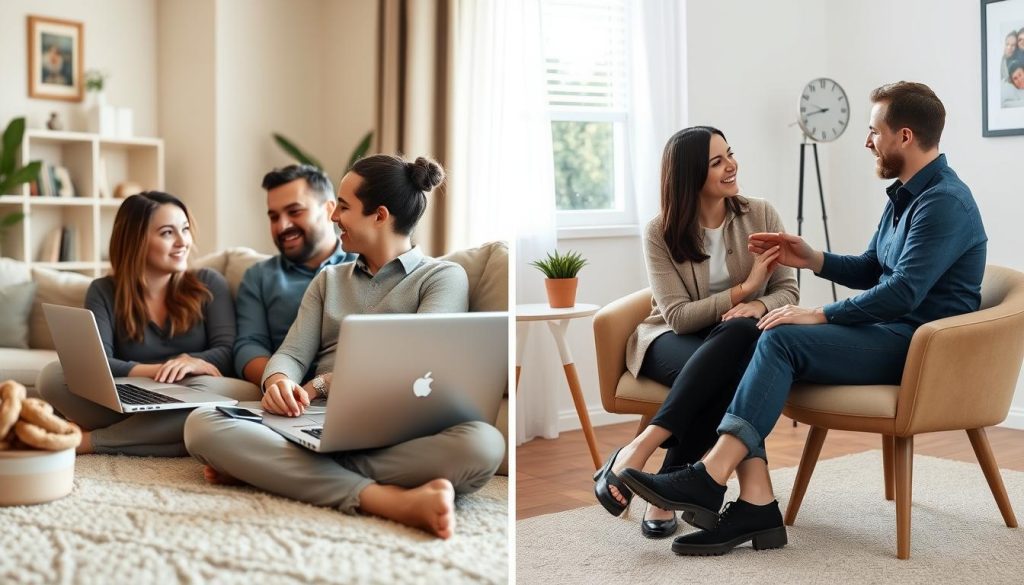
How to Choose the Right Online Couples Therapy Service
Finding the right therapist and platform is crucial for successful online couples therapy. Follow these steps to make an informed decision:
-
Identify Your Specific Needs
Consider what issues you want to address: communication problems, intimacy concerns, conflict resolution, infidelity recovery, or premarital counseling. Some therapists specialize in specific relationship challenges.
-
Research Provider Credentials
Verify that potential therapists are licensed mental health professionals with specific training in couples therapy. Look for credentials like LMFT, LPC, or psychologists with relationship specialization.
-
Consider Therapeutic Approaches
Different therapists use various methods. Research approaches like Gottman Method, Emotionally Focused Therapy (EFT), or Imago Relationship Therapy to find what resonates with your situation.
-
Check Insurance Coverage
Contact your insurance provider to determine if they cover online couples therapy. Many plans now include telehealth services, though coverage for couples therapy specifically varies by provider.
-
Evaluate Technology Requirements
Ensure you have the necessary technology: reliable internet connection, device with camera and microphone, and private space for sessions. Test the platform before your first appointment.
-
Schedule Consultation Calls
Many therapists offer free initial consultations. Use these to assess your comfort level with the therapist and ask questions about their approach, experience, and session structure.
Questions to Ask Potential Therapists
- What is your experience with our specific relationship concerns?
- What therapeutic approaches do you use for couples?
- How do you structure online sessions?
- What is your cancellation policy?
- How do you handle technology issues during sessions?
- What is your policy on individual sessions within couples therapy?
- How do you measure progress in therapy?
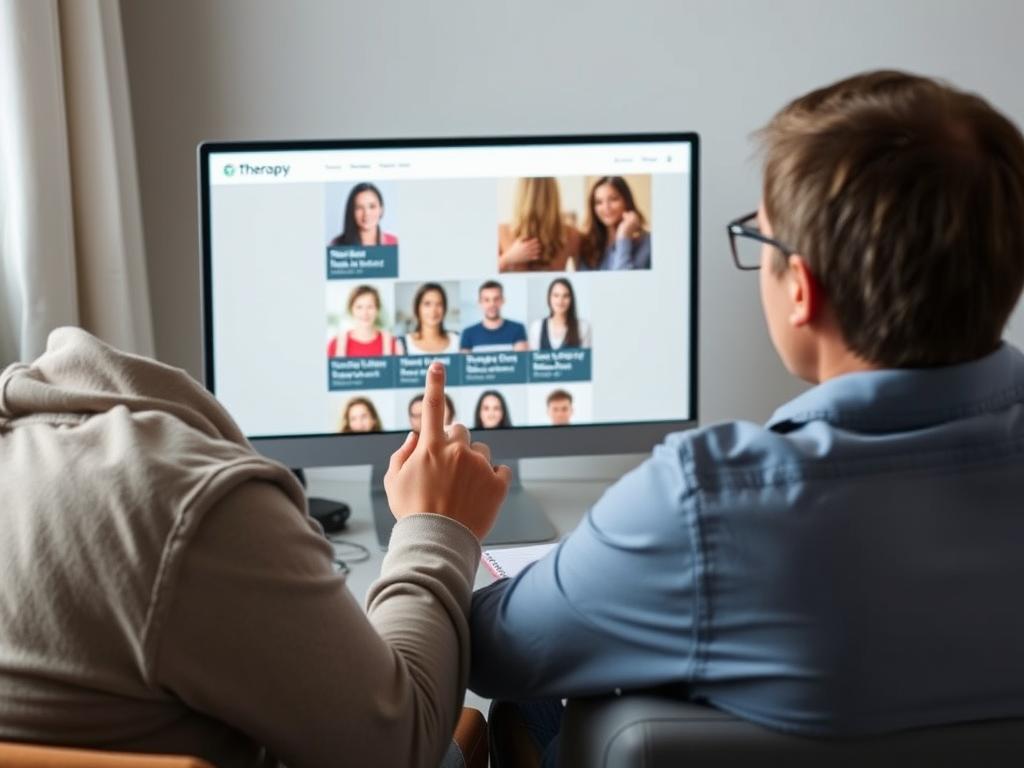
Common Relationship Issues Addressed in Online Couples Therapy
Online couples therapy can effectively address a wide range of relationship challenges. Understanding that your struggles are common can help reduce shame and increase hope for improvement.
Communication Problems

Difficulty expressing needs, frequent misunderstandings, unhealthy argument patterns, and poor listening skills. Therapists teach effective communication techniques tailored to each couple’s specific dynamics.
Intimacy & Connection

Emotional distance, physical intimacy concerns, mismatched desire levels, and reconnecting after major life changes. Therapy helps rebuild emotional and physical bonds through structured exercises.
Trust & Infidelity
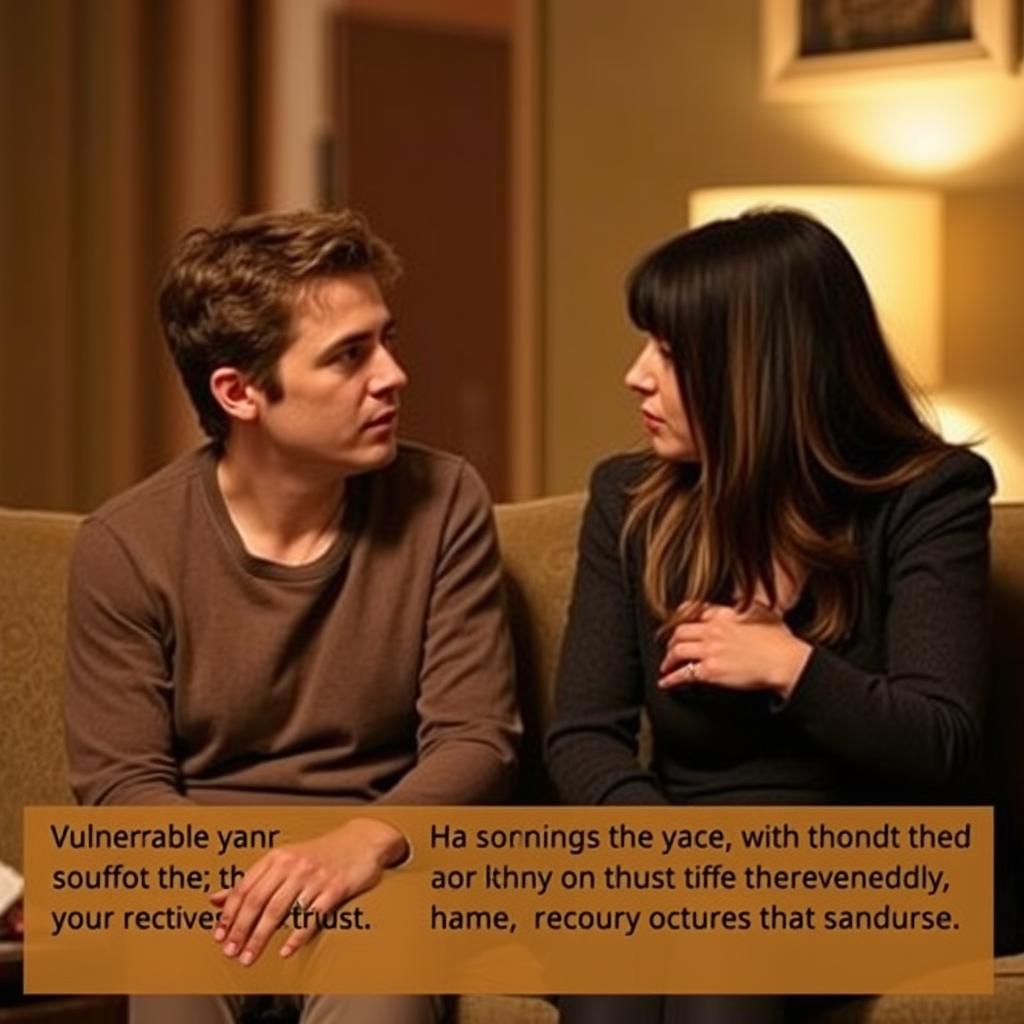
Rebuilding trust after betrayal, addressing jealousy or insecurity, and establishing healthy boundaries. Therapists provide a structured approach to healing and rebuilding the relationship foundation.
Conflict Resolution

Recurring arguments, difficulty finding compromises, and unhealthy conflict patterns. Learn effective techniques for resolving disagreements constructively and understanding underlying needs.
Life Transitions

Navigating parenthood, career changes, relocation, retirement, or empty nest adjustments. Therapy helps couples maintain connection during significant life changes and develop shared visions for the future.
Premarital Counseling

Preparing for marriage by addressing expectations, communication styles, financial planning, and family dynamics. Proactive therapy that builds a strong foundation for marriage.
Tips for Maximizing Success in Online Couples Therapy
Getting the most from your virtual couples counseling experience requires preparation and commitment. These practical tips can help ensure productive sessions:
Before Your Sessions
- Create a private space – Find a quiet area where you won’t be interrupted or overheard during sessions.
- Test your technology – Check your internet connection, camera, and microphone before each session to avoid technical disruptions.
- Minimize distractions – Turn off notifications, silence phones, and arrange childcare if needed.
- Prepare discussion topics – Jot down issues or questions you want to address during the session.
- Enter with an open mind – Approach therapy with willingness to examine your own contributions to relationship patterns.


During and Between Sessions
- Practice active listening – Focus fully on your partner when they’re speaking, without planning your response.
- Be honest but respectful – Share your feelings openly while using “I” statements rather than accusations.
- Complete homework assignments – Dedicate time to practice techniques and complete exercises assigned by your therapist.
- Track progress – Note improvements and challenges between sessions to discuss with your therapist.
- Commit to regular attendance – Consistent participation leads to better outcomes.
Remember: Therapy is a process that takes time. Most couples see meaningful improvements after 8-12 sessions, though this varies based on the issues being addressed and your commitment to the process.
Frequently Asked Questions About Online Couples Therapy
Is online couples therapy effective?
Yes, research shows that online couples therapy can be as effective as traditional in-person therapy for many relationship issues. A 2020 study in the Journal of Marital and Family Therapy found comparable outcomes between virtual and in-person formats. The key factors for success are the therapist’s qualifications, the couple’s commitment to the process, and consistent participation.
How much does online couples therapy cost?
Costs vary widely based on the therapist’s credentials, location, and whether you use an individual practitioner or a therapy platform. Generally, sessions range from -200 per session. Many insurance plans now cover telehealth services, though coverage specifically for couples therapy varies. Some platforms offer subscription models ranging from 0-400 monthly for weekly sessions.
How long are online couples therapy sessions?
Most online couples therapy sessions last 45-60 minutes, similar to in-person therapy. Some therapists offer extended 75-90 minute sessions, particularly for initial assessments or intensive work. The frequency is typically weekly, though this may adjust based on your needs and progress.
What if my partner is reluctant to try therapy?
This is common. Consider sharing educational resources about the benefits of couples therapy, suggesting a single session to “try it out,” or starting with individual therapy that could transition to couples work. The convenience of online formats sometimes makes reluctant partners more willing to participate. Avoid pressuring or criticizing, as this can increase resistance.
Is online couples therapy confidential?
Yes, licensed therapists are bound by the same confidentiality laws and ethical guidelines whether they practice online or in-person. Reputable platforms use encrypted, HIPAA-compliant technology to protect your privacy. Your therapist should explain their confidentiality policies during your first session, including any legal limitations to confidentiality.
Can we do online therapy if we’re in different locations?
Yes, this is one of the major advantages of online couples therapy. Partners can join from different locations, making it ideal for long-distance relationships, couples who travel frequently, or situations where one partner is temporarily away. Each person simply needs their own device and internet connection.
Taking the First Step Toward a Stronger Relationship
Seeking help for relationship challenges is a sign of commitment, not weakness. Online couples therapy offers a convenient, effective way to address issues and build a healthier partnership with professional guidance.
Whether you’re facing communication breakdowns, trust issues, intimacy concerns, or simply want to strengthen your connection, virtual couples counseling provides the tools and support needed to create lasting positive change.
Remember that successful therapy requires commitment from both partners, but the investment in your relationship can yield rewards that last a lifetime. By choosing online couples therapy, you’re taking a significant step toward understanding each other better and building the relationship you both deserve.

Additional Resources for Relationship Support
Recommended Books
- “The Seven Principles for Making Marriage Work” by John Gottman
- “Hold Me Tight” by Sue Johnson
- “Getting the Love You Want” by Harville Hendrix
- “Love Sense” by Sue Johnson
- “The 5 Love Languages” by Gary Chapman
Helpful Articles
Ready to strengthen your relationship?
Take the first step toward a healthier partnership with a free 30-minute consultation with a licensed therapist specialized in couples counseling.
Improve your communication skills today
Download our free guide: “10 Communication Techniques That Transform Relationships” and start implementing proven strategies right away.
Find your perfect therapeutic match
Our network of licensed therapists specializes in various relationship approaches. Take our matching quiz to find the right fit for your unique situation.
Ready to transform your relationship?
Our licensed therapists specialize in helping couples rebuild connection, improve communication, and create lasting positive change.

